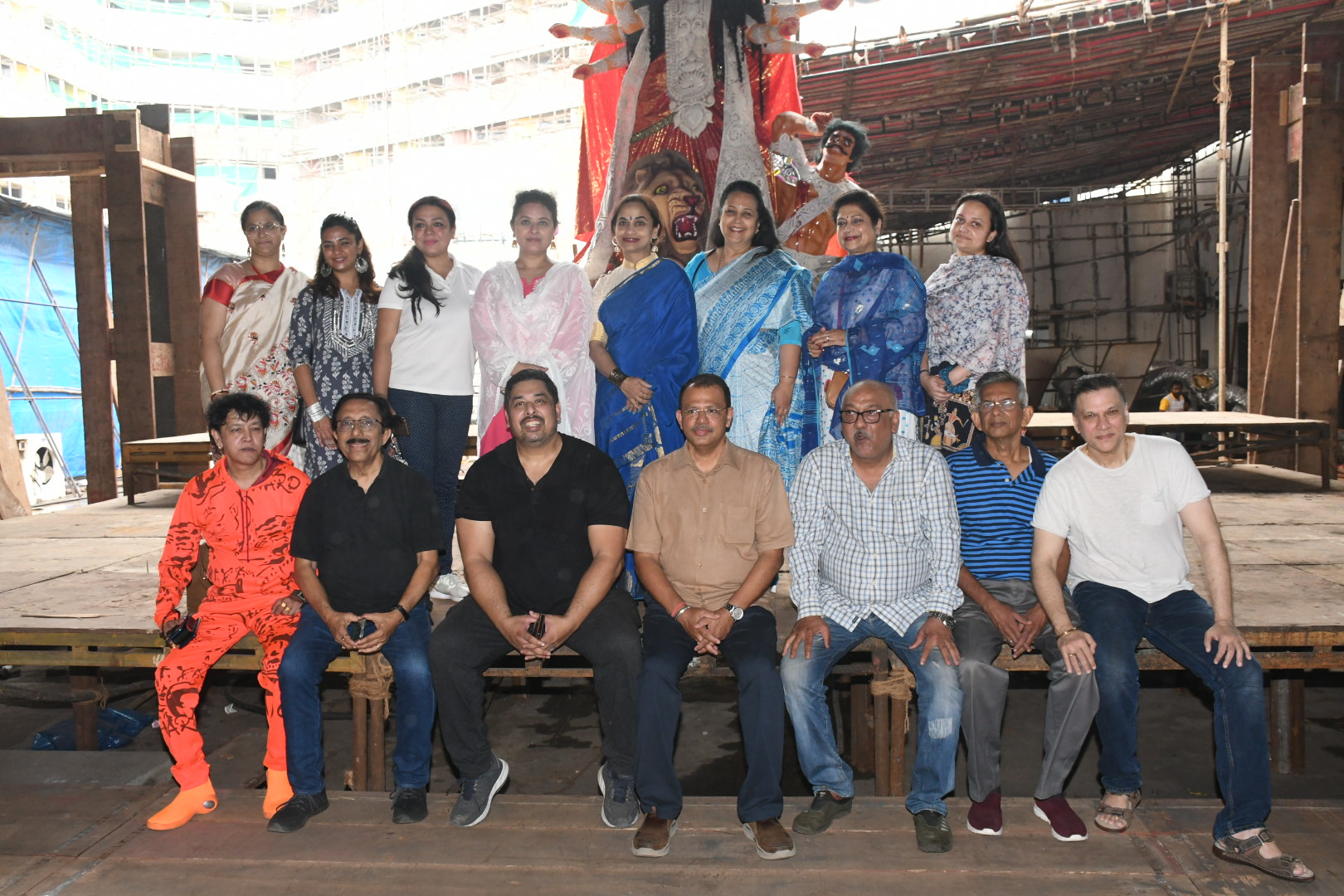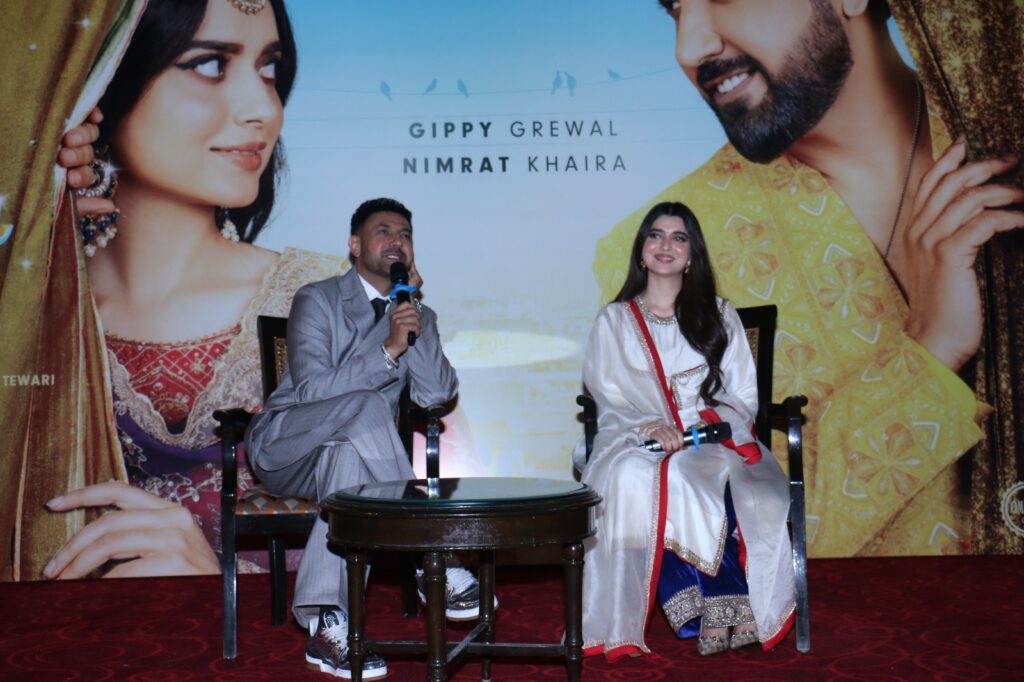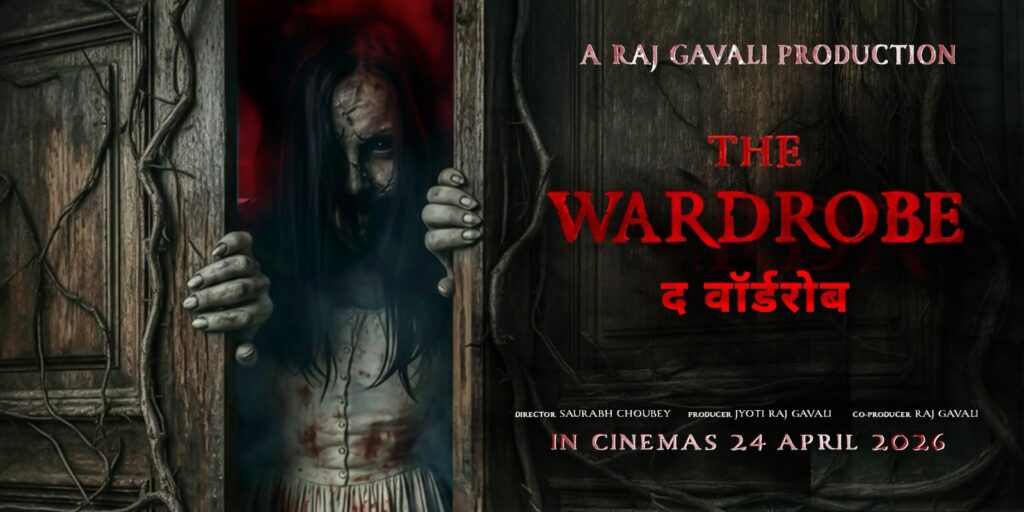Since 2020, the Durga Puja in India has been a dismal affair with low-key celebrations and relatively smaller idols. However, this year, the celebrations will be even grander as it marks the end of the Covid 19 pandemic.
North Bombay Sarbojanin Durga Puja Samiti’s in their 75th year welcomes a 11 ft tall eco- friendly idol of Durga Maa. As they celebrate their Platinum jubilee, the pandal has the theme of “Sheesh Mahal” inside a temple complex. The USP of the oldest & the grandest pandal in Mumbai lies in the manner in which all visitors become part of the celebration and are served Bhog – prasad while seated in an airconditioned hall. The bhog is served by the members, volunteers and people get a chance to meet celebrities from the industry. More than 15,000 devotees over 3 days are served with delicious bhog. The manner in which they organize and have a streamlined layout, with excellent facilities for senior citizens and differently abled is one of the reasons why North Bombay Sarbojanin Durga Puja Samiti’s pandal has the highest footfall. This year the members & the celebrity guests will pay a musical tribute to India’s disco legend Late Shri Bappi Lahiri
Members of North Bombay Sarbojanin Durga Puja Samiti quoted saying “We welcome all to our pujo to seek maa’s blessings. Celebrations at North Bombay Sarbojanin Durga Puja Samiti will be bigger, better & grander”
Durga Puja is celebrated from Shasti to Bijoya Dashami
MAHASHASHTI: On this day, Maa is welcomed with much fan fare. In the evening ,the Kulo is decorated with Paan, Sindur, Alta, Sheela (stone) , Dhaan etc..and amidst the beats of Dhaak and sound of Shaankh, Maa is welcomed… This is called Amontron and Adhivas -Maa’s Bodhon… Maa is being welcomed.
MAHASAPTAMI: On this day the Kalash (Earthen Pot) is placed with a green Coconut and Mango Leaves . This is surrounded on all sides by a red thread and tied. This is called KALASH STHAPAN. The Kalash is an earthen Pot because Maa’s Murti is made of Ganga clay and Maa’s PRAAN (or life) is concentrated in the Pot. So the Pot is the symbol of Maa. The Puja starts with praying to Ganapati , followed by prayers to Maa. Another name of Maa Durga is NABA PATRIKA, which means nine trees i.e.Banana tree, Kochu tree, Haldi tree, Jayanti tree, Branch of Bel tree, Dalim tree ( pomegranate) are tied together. The double Bel fruit is tied to the Banana tree. This is then taken to a river bank or sea and given a bath. When it is brought back it is drapped in a white and red sari with sindur and it now looks like a married lady with her head covered. This is called KOLA BAHU. Many have a misconception that KOLA BAHU is wife of Ganapati but actually she is MaaDurga or Naba Patrika.. Ganapati’s mother
MAHA SNAN: On this day Maa Durga is given a bath. First a vessel is placed in front of the Murti; a mirror is kept in the vessel, so that the reflection of Maa is seen in the mirror. The Priest applies Haldi and Mustard oil on the mirror, as though they are applying it on Maa before the bath. In earlier times when there was no soap, haldi and mustard oil were used for having bath. The Pujari puts different kinds of water, i.e. Coconut water, Chandan, Ganga jal, Sugar cane juice, water from seven holy seas to give her bath. During this time, mud from every region, as well as mud from Prostitute’s door is very essential. After bath the Pujari puts dhaan- durba and new sari with Maa’s name written on the mirror which is then placed on the Bedi (the place of worship)
PRAN PRATISTHA: This means bringing life into the mirror. The Pujari takes Kusha and flowers in the right hand, and touches Maa from head to foot and with Mantra Path life is brought into the Murti, Mirror and Kalash.
MAHA AGAMAN: Every year Maa comes either on a Palki or an Elephant or a Boat or a Dola (Swing) , or a Horse etc. This Bengali year 1423, Goddess Durga’s arrival on a horse signifies, indicates the “bad horse”- The most destructive mood, hence all her path is trampled. The Goddess arrives & leaves the earth on the same vehicle, indicating natural calamities, social unrest and political upheavals. Maa Durga’s agaman- is on the horse & gaman – on a horse.
Welcome : The puja to welcome Maa is done with 16 items- Ashan Swagatam [ Welcome ], Paddyo [ Water To Wash The Feet ], Argho, Achmoniyom, Madhu Parkam , Purnar Achmaniyam, Abharan [ Shringar], Sindoor, Gandha [ Scent ], Pushpa[ Flower], Pushpa Mallya [ Garland] , Billo Patra [Bel Leaf] , Billopatra Mala[ Garland Of Bel Leaf], Dhoop,Deep, Kajal, Naibiddo, Bhog And Mishti [Sweet], Paan, Supari.
PUSHPANJALI [PRAYER OFFERING]: Puspanjali means offering prayers at Maa’s feet to give everyone long life, fame, good luck, health, wealth, happiness. The devotees request Maa to protect them from all evil, sadness, greed & temptations.
MAHA ASHTAMI PUJA: Maa is now Maha Gauri- The Puja starts with Mahasnan & Maha gauri puja. The Puja is done to give Maa the strength of the 64 Yoginis. This is a Puja of 9 pots. Then the weapons of Maa are worshiped.
SHANDHI PUJA : This is the puja when Ashtami Puja ends and Navami Puja begins,so the name Shandhi puja. This is considered to be the most vital time, meeting (shandhi)of Ashtami and Navami puja. The duration of this Puja is 45 minutes. At this moment Maa is CHAMUNDA. Pushpanjali: Prayer offering. Bhog is offered which consists of fruits and sweets are offered to Maa, followed by “NEET BHOG” , consisting of Rice, Ghee, Dal, Fried Vegetables, Chutney and Payesh. This prasad is later distributed amongst the devotees which is called KANGALI BHOJAN.
At this time 108 diyas are lit and 108 lotus are offered to Maa. There is a famous story that Lord Ram prayed to Maa Durga offering 108 lotus at her feet in order to defeat Ravan. But to his surprise he found one lotus missing , to replace it ,he wanted to sacrifice his eye and pray to Maa..at that moment Maa appeared in front of him and stopped him..returning the missing lotus to him. She then blessed him for his ” VICTORY”.
MAHA NAVAMI PUJA : On this day, Maa is SIDDHI DHATRI. This Puja starts with Ganapati Puja and then puja of all the other DEV and DEVIS are performed.. followed by Maha Snan of Maa.
BIJOYA DASHAMI:- On this day Maa had defeated and killed Mahishashur.
DEVI PUJA:- Bhog with curd, honey and milk is offered to Maa.. this is called CHARANAMRIT. The pujari sitting on the Asan takes a flower near the sacred pot and keeps it in the Northern direction because Maa is from KAILASH.
Then the pujari takes the sacred mirror which was on the vessel and performs the ritual of Visharjan. This is the same mirror which was used to welcome Maa because her reflection is on the mirror .
SINDUR UTSAV: The married ladies apply sindur on Maa’s forehead and offer sweets after which all the other ladies apply sindur on each other’s forehead. This is followed by KANAK ANJALI when Maa is departing back to her husband’s abode.
VISHARJAN:- During the Visharjan of the Murti, all the devotees either go to a river bank or sea and immerse the Murti in the water.
SHANTI JAL: – The sacred pot is brought back from the river/sea filled with the water where the Murti is immersed. Then the pujari chants the Mantra and sprinkles water with the help of mango leaves on the head of all the devotees for peace and happiness.
DASSERA: This is the day of rejoicement, where youngsters touch the feet of their elders seeking their blessings and sweets are distributed.
North Bombay Sarbojanin Durga Puja Samiti is the only Durga Puja Samiti which performs the visarjan with the help of fork lift and crane. The idol is lifted from the truck and then taken till the middle of the sea with the help of a crane . After the seven parikramas are performed, they are then finally immersed one by one into the sea.




